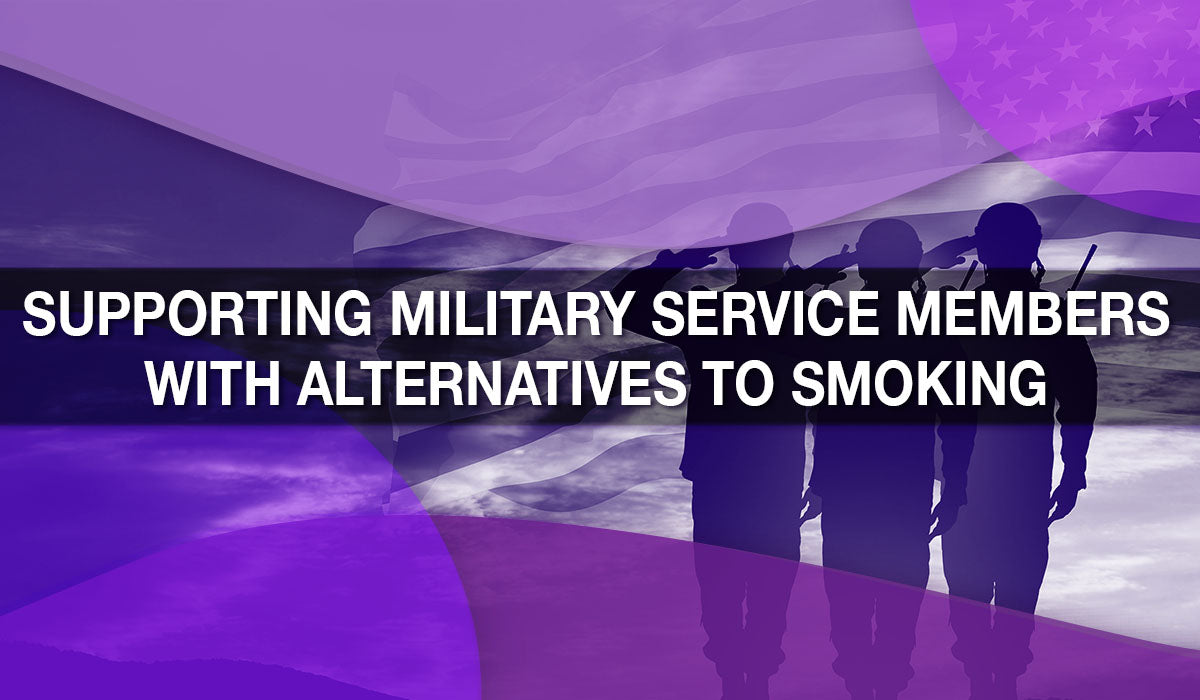
Supporting Military Service Members with Alternatives to Smoking
Smoking has long been linked to severe health consequences, including cancer, cardiovascular disease, and respiratory issues, leading to numerous deaths each year. For individuals leading stressful lives, such as military service members, cigarettes can seem like a quick escape, albeit one that comes with significant health risks. It's crucial for public health initiatives to support alternatives, particularly for those who have served our country.
Higher Smoking Rates Plague Military
In the United States, military service members are more likely to take up smoking than their civilian counterparts. According to the Centers for Disease Control and Prevention (CDC), from 2010 to 2015, 21.6 percent of military service members began using tobacco after joining the military. This rate varies depending on the role and status of service, with deployed personnel being especially prone to smoking.
Financial Cost of Smoking
The financial costs associated with smoking are staggering. In 2014, the Department of Defense spent approximately $1.8 billion on medical and non-medical expenses related to tobacco use. This figure highlights the urgent need for effective smoking cessation programs tailored to military personnel.
Veterans Group Pursues Smoking Alternatives
Jarred Taylor, a 13-year veteran of the Air Force and the Air National Guard, witnessed many of his fellow service members develop smoking habits during their deployments. He emphasized that smoking, combined with exposure to hazardous chemicals like those from burn pits, significantly diminishes life expectancy.
In response to this pervasive issue, both governmental and independent initiatives are working to help veterans quit smoking and improve their health. The U.S. Department of Veterans Affairs (VA) offers various medications and counseling services designed to help former service members stop smoking. These include nicotine replacement therapies (NRTs) such as chewing gum, nasal sprays, and skin patches, as well as prescribed medications like bupropion and varenicline. Counseling services are available both individually and in group settings.
Smokeless Vets
However, some veterans find additional support through campaigns like Smokeless Vets, which advocates for the use of alternative nicotine products not traditionally endorsed by the VA. These products include e-cigarettes and nicotine pouches, which offer nicotine without the harmful byproducts of combustible tobacco.
As an advocate for Smokeless Vets, Jarred Taylor expresses concern about the VA’s stance against e-cigarettes and similar products. While acknowledging that these alternatives are not entirely risk-free, he argues that they can be instrumental in helping individuals quit smoking altogether.
The ultimate goal of Smokeless Vets is ambitious: to help 500,000 veterans quit smoking by 2035. Ryan Taylor, another advocate for the campaign, emphasizes the importance of supporting veterans in this endeavor.

Public health initiatives must recognize the unique challenges faced by military personnel and provide comprehensive support to help them transition to safer alternatives. By promoting the use of e-cigarettes, nicotine pouches, and other harm reduction products, we can significantly reduce the health risks associated with smoking and improve the quality of life for those who have served.
For more information on the Veterans Administration’s efforts to help veterans quit smoking, visit their website. To learn more about Smokeless Vets and their mission, click here.









Leave a comment
This site is protected by hCaptcha and the hCaptcha Privacy Policy and Terms of Service apply.